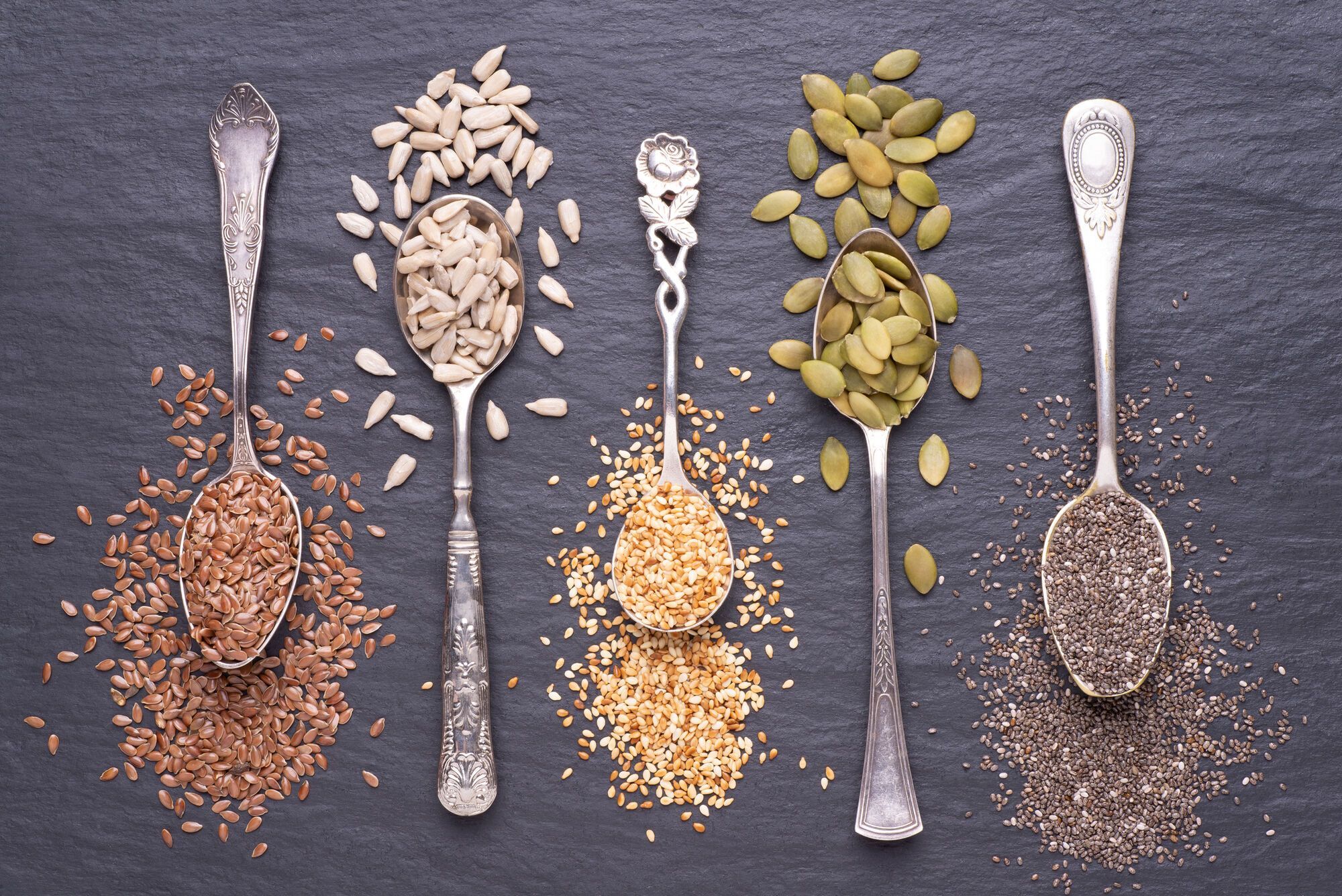LS Food
Named 7 types of seeds to improve bowel function
Chia, sesame, flax, and pumpkin seeds contain a lot of fiber, which improves bowel function. In addition, vitamins, minerals, and antioxidants stand out among the nutrients.
OBOZREVATEL offers to learn more about the beneficial properties of 7 types of seeds published on conceptosalud.com.
Chia seeds
100 g of chia contains about 34 g of fiber. This seed provides a feeling of satiety, helps to lose weight, reduces bloating, and facilitates digestion. In addition to this, it is rich in omega-3 fatty acids, vitamins A and B, as well as calcium, iron, and magnesium. It can be added to salads, yogurt, juices, and various baked goods.
Flax seeds
Flaxseed promotes heart and intestinal health. They contain 33.5 g of fiber per 100 g of product and are one of the richest sources of omega-3, 6, and 9. It is best consumed in ground form to facilitate the digestion process, adding it to salads, juices, bread, or desserts.
Pumpkin seeds
100 g of pumpkin seeds contain about 18 g of fiber, a lot of omega-3 fatty acids, as well as vitamins (A, B and E), minerals (iron and magnesium) and antioxidants. Thanks to its versatility in the kitchen, it can be used to make various pastries, pasta, or meat sauces.
Sesame seeds
Sesame seeds are a good source of fiber (12 g per 100 g), protein, and iron. It also contains vitamins B1, B2, and E, which contribute to the proper functioning of the intestines and improve skin elasticity.
Mustard seeds
Mustard seeds are one of those foods that should be included in your diet. Since they are absorbed by the body more slowly, they contribute to the process of losing weight. Also, these seeds contain a sufficient amount of fiber (12 g per 100 g), which contributes to a feeling of satiety and improves intestinal health.
In addition, it is rich in vitamins (A, C, E, and K) and other nutrients that help the body to be more resistant to any disorders of its functioning.
Sunflower seeds
Sunflower seeds contain approximately 9 g of fiber per 100 g of product. They are also a good source of selenium (a mineral that helps protect the immune system), vitamin E, and antioxidants.
Quinoa seeds
Quinoa is a versatile seed with a high nutritional value. It contains 2.3 g of dietary fiber (per 100 g serving) and a good amount of riboflavin (vitamin B2), which is essential for the metabolic process.
It is usually added in the form of flour, flakes, or boiled grains to various sweet and savory foods (kibbeh, tabbouleh, bread, pasta, cookies, or fruit salads).




























